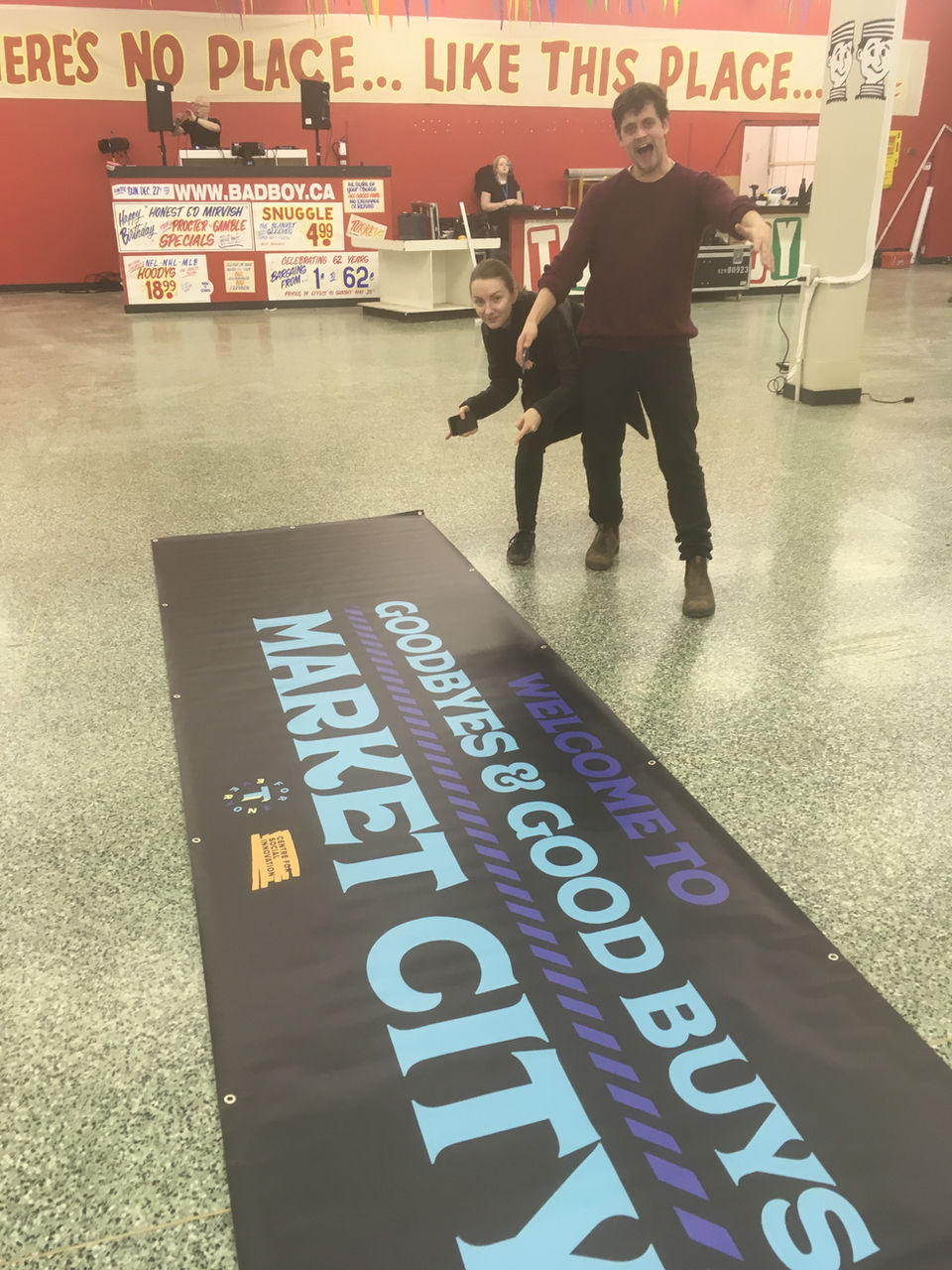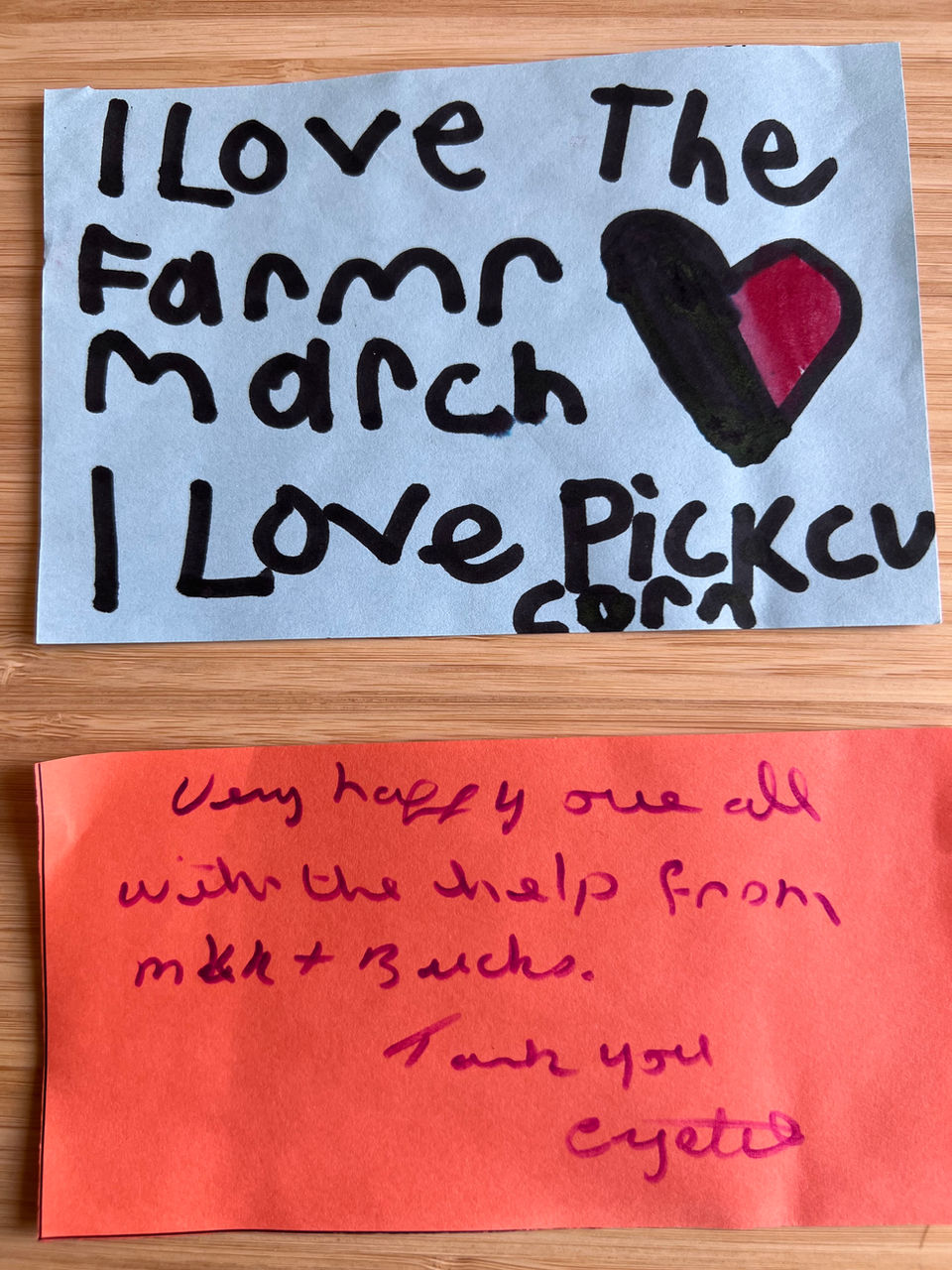Featured Projects

Market Managers and Operators Training Program
The Market Managers and Operators Training Program is a professional development initiative currently being piloted by marketcityTO to equip public market managers and operators with the knowledge, skills, tools, and peer support needed to run successful and sustainable community-centered markets in Toronto. The program is a response to the expressed needs of market managers and operators, who have indicated their desire to receive professional development training but have had limited access to such opportunities.

Public Markets Week
5
Neighbourhood Markets Tours
Markets engaged
June marks the City of Toronto Public Markets Week. This is an opportunity to visit, learn, promote, and celebrate the culture, diversity, and entrepreneurship of those participating in public markets across Toronto, emphasizing Indigenous, Black, and Immigrant communities.

Building marketcityTO
2023 has been a tremendous year, and these three actions (IPMC, Public Market Week & Public Market Action Plan in 2024), culminate almost ten years of work launched at the Toronto Food Policy Council in 2015. During this time, we learned how to mobilize, advocate and build partnerships to lead this work. Learn more about our journey of getting to where we are today, and the many actions it took to make all this happen.
marketcityTO's work aligns with several of the United Nations Sustainable Development Goals

Our Collective Impact
We understand that each neighbourhood market impacts the community it serves in different ways. Furthermore, when connected, supported, and integrated into City priorities, they have the potential to address some of the most pressing urban issues.
marketcityTO is committed to working with stakeholders to develop an evaluation framework that allows us to demonstrate our sector's collective impact year-to-year.
Public Markets enable connected
communities to become more resilient to climate shocks.
Together, Public Markets catalyze
action toward food system transformation and enable climate actions at a local level by integrating adaptation and
mitigation strategies.

Advance
Climate Action &
Regional Resilience
Public Markets enable innovation and entrepreneurship in our city by activating economic development at a neighbourhood scale and providing customers with access to urban and rural
entrepreneurs.
Together, Public Markets catalyze
action towards more inclusive economies and strengthen local supply.

Enable
Inclusive & Diverse
Local Economies
Public Markets enable public health at a neighbourhood level by increasing access to nutritious, culturally diverse food, creating active public spaces, and promoting social connections.
Together, Public Markets improve
the mental, social, and physical well-being of the residents they serve and catalyze action toward connected communities.

Increase
Social Connection &
Residents Well-Being
marketcityTO is an emergent grassroots initiative that collaborates with market managers, vendors, and the City to unlock the potential of Public Markets. We’re creating a network one project at a time by building relationships and trust rooted in the place we live, work, and play: Toronto.
Since time immemorial, Tkarón has been an important place for the Wendat, the Haudenosaunee, the Anishinaabe, including the Mississaugas of the Credit, the Métis, and other First Nations to gather and trade goods and knowledge. Learn about our commitment to focusing on Indigenous Food Ways here.
Our Approach

Credit: Tremar Arikiic and Saiyeeda Farhin, two local youths working at the Scarborough Fresh Food Market pilot in 2022.
Our Approach
marketcityTO is an emergent grassroots initiative that collaborates with market managers, vendors, and the City to unlock the potential of Public Markets. We’re creating a network one project at a time by building relationships and trust rooted in the place we live, work, and play: Toronto.
Tkaronton has been a maawanji’iding (gathering place) for the Wendat, the Haudenosaunee, and the Anishinaabe, including the Mississaugas of the Credit, the Métis, and other First Nations and not Indigenous communities— a place to meet and trade goods and knowledge.
This territory is subject to the Dish with One Spoon Wampum Belt Covenant, an agreement to share and care for the land and resources in the Great Lake region peacefully.
As we work toward collectively re-imagining Toronto as a Market City, we as treaty people recognize our responsibilities to uphold.
Making visible & bringing together neighbourhood-based markets.
Toronto boasts 160+ diverse markets led by community champions, operating mainly in the public realm. This first Toronto Public Markets map aims to bring together all neighbourhood-based markets, from farmers’ Markets to Bazaars, Antiques to Markets, and municipal markets to market districts. If we missed your market, please reach out. We aim to make our city’s mid-size distribution and retail infrastructure visible and celebrate the people and organizations behind it.

Credit: Nicole Jacobs & Anne Freeman, current and former market managers Dufferin Grove Farmers’ Market.
We regularly visit markets across the city. Indoor Season is here! Featured in this video in order of appearance are: The Stop Farmers' Market, Allan's Garden Farmers' Market,
St. Lawrence Market , Sunday Variety and Evergreen Saturday Farmers' Market

Our Approach
marketcityTO is an emergent grassroots initiative that collaborates with market managers, vendors, and the City to unlock the potential of Public Markets. We’re creating a network one project at a time by building relationships and trust rooted in the place we live, work, and play: Toronto.
Since time immemorial, Tkarón has been an important place for the Wendat, the Haudenosaunee, the Anishinaabe, including the Mississaugas of the Credit, the Métis, and other First Nations to gather and trade goods and knowledge. Learn about our commitment to focusing on Indigenous Food Ways here.
Our Valued Partners
Partnerships are at the core of marketcityTO and are intrinsically linked to our work. We are grateful to all the partners who have said YES to this ambitious idea of building a public market network and have supported our work in different ways.
The initiative for public markets in the City began in 2015 at the Toronto Food Policy Council, which is part of the Food Strategy team. We are thankful for their initial support and ongoing collaboration with the Economic and Community Development division. We extend special thanks for their time, expertise, and resources contributed to the 11th International Public Markets Conference and for their efforts in advancing the work on the inaugural Toronto Public Markets Action Plan.

We are so happy to be part of the CSI Annex Community! Thanks for the complimentary annual membership, which allows us to host meetings and, more importantly, connect to amazing innovators in the city and beyond.

Since 2019, FoodShare Toronto has been a critical and strategic partner supporting the work to build and strengthen the Toronto public market network. This has included increasing our connections with the Community Markets Support Program (former Good Food Markets) and providing staff time, resources, and sponsorship of the 11th International Public Market Conference. marketcityTO is now a member of FoodShare Toronto's Supportive Partnership's Platform (SPP).

Since 2021, the Golden Horse Food and Farming Alliance has supported and promoted marketcityTO work. They are providing strategic advice on bringing a regional approach, funding the first Scarborough Neighbourhood Fresh Food Pilot and sponsoring the 11th International Public Markets Conference.

Since 2019, the Project for Public Spaces public market team has continued to be a great partner, providing mentorship support and enabling opportunities for us to share and promote the work we are doing in Toronto.

Since 2015, the St. Lawrence Market team has strategically developed various proposals to secure and successfully host the 11th International Public Market Conference. They are partners and will be the host venue for the first Toronto Public Market Symposium, which takes place in November 2024. We sincerely appreciate their knowledge, commitment, and expertise in public markets and in making these market events successful.

We are grateful to be part of the Circles of Action cohort and this meaningful learning and networking journey with 12 other teams across Canada, building belonging and advancing more equitable futures.

We are grateful to Prof. Zhixi Cecilia Zhuang (School of Urban & Regional Planning), Sarah Elton (Department of Sociology, Food Health Ecosystems Lab) and Andrea Moraes (School of Nutrition) for their ongoing support in promoting and advancing Toronto Public Markets ecosystem place-based research. More importantly, providing Student Research Assistants for various projects which increases our capacity to integrate research into community work.

We are grateful for the TUG team joining in meetings, participating in our programs and supporting fundraising efforts to find ways to increase the connection between public markets and urban agriculture in our city.

We are grateful for all the support in telling the marketcityTO story through this website developed by The Chrysalis

Since 2019, marketcityTO has collaborated with the University of Toronto Feeding City Lab team. We are grateful for their ongoing support, with Student Research Assistants in various projects and promoting our work on Voices from the Food Frontlines, special events hosted at the school, and an 11th International Public Markets Conference Sponsorship.


Neighborhood markets provide opportunities for weekly or seasonal gatherings, which are especially important for immigrants like me. Being involved in markets, first as a vendor, then as a market manager, and now as an advocate, has allowed me to form connections, share my culture, and feel more connected to the city I now call home. I am deeply grateful for this, and it motivates me to remain dedicated to this work
Marina Queirolo, Founder of markecityTO
.png)


























